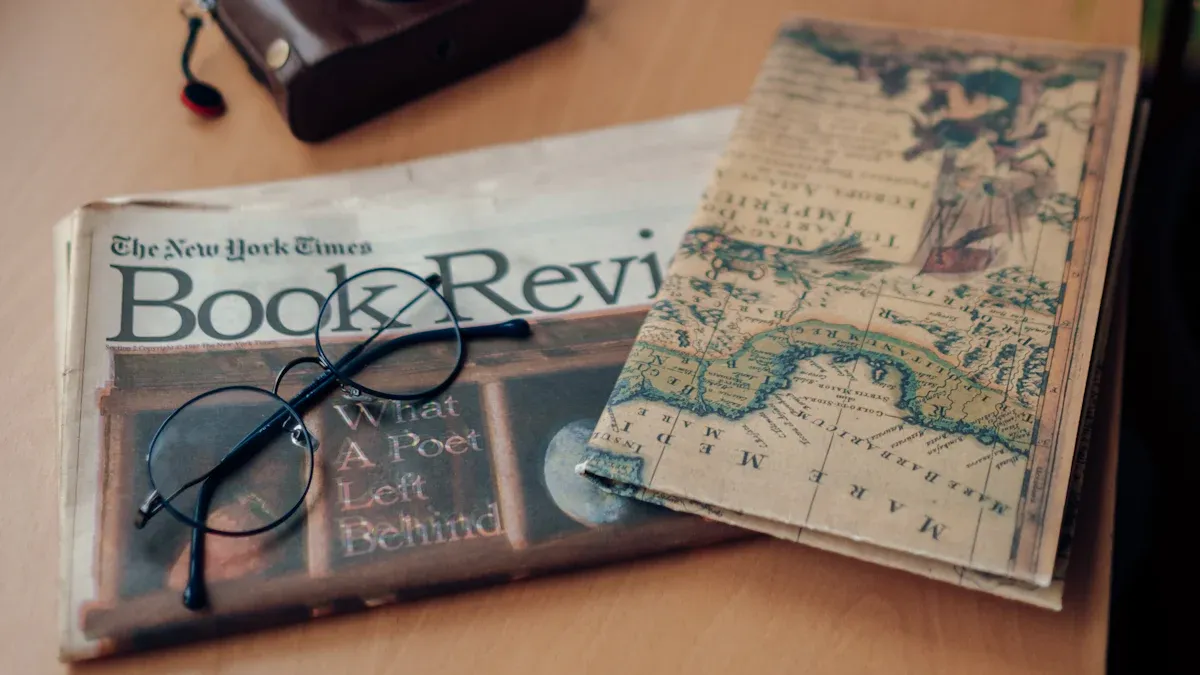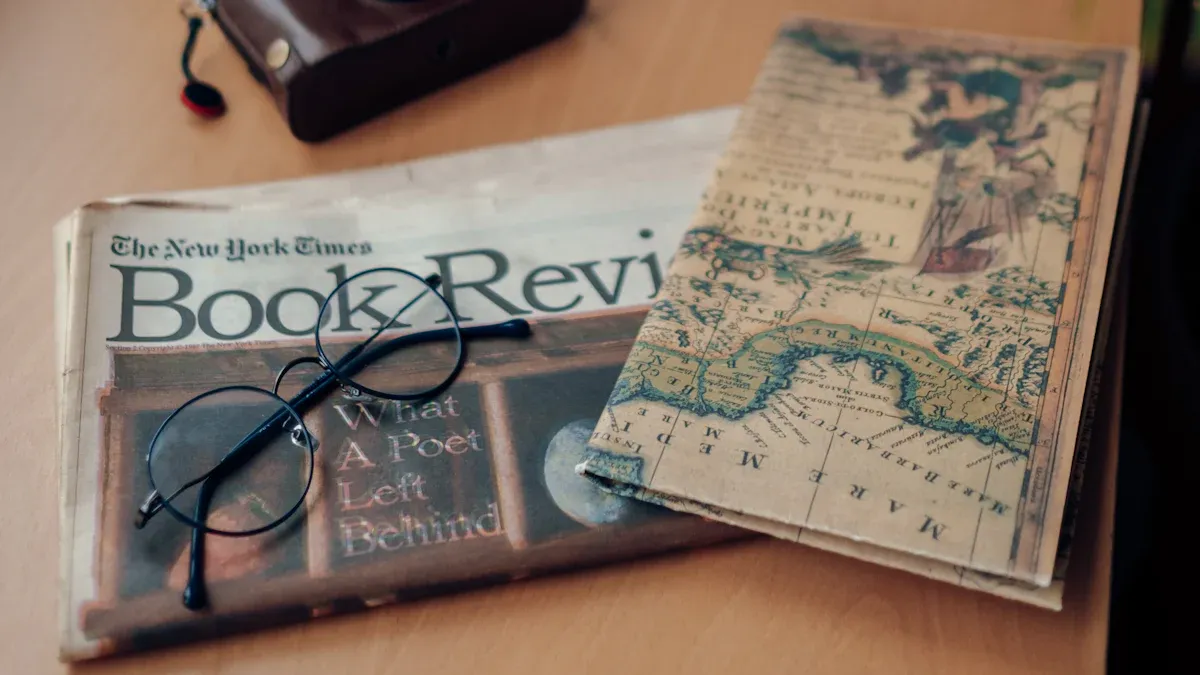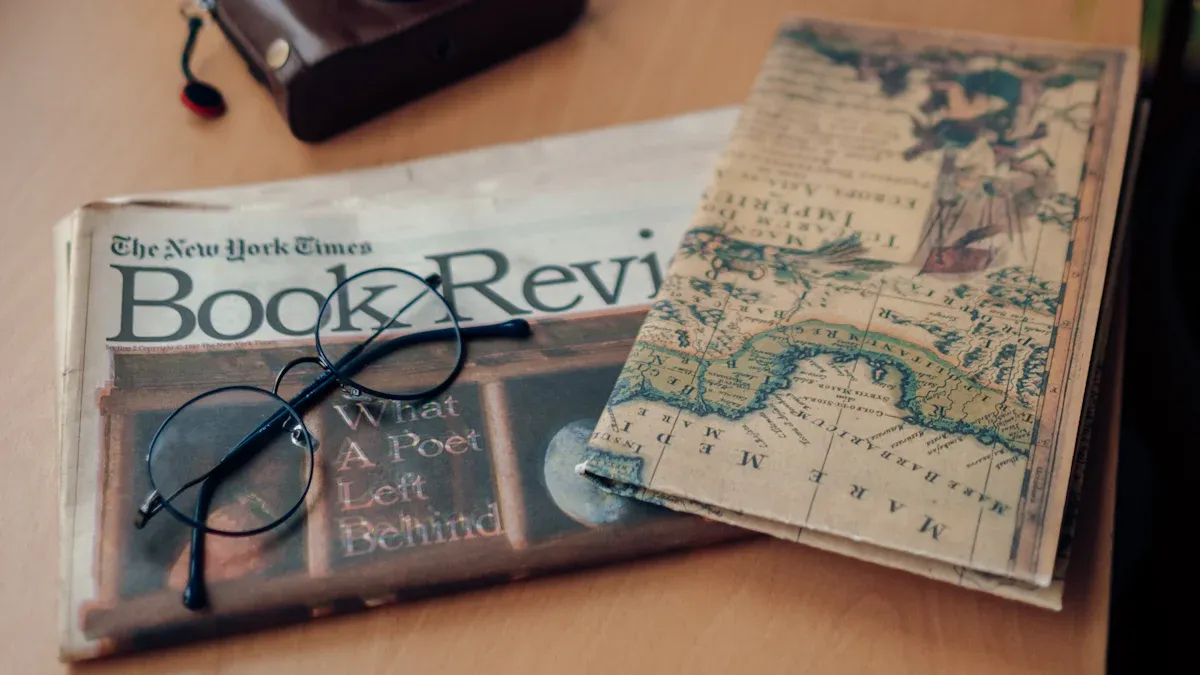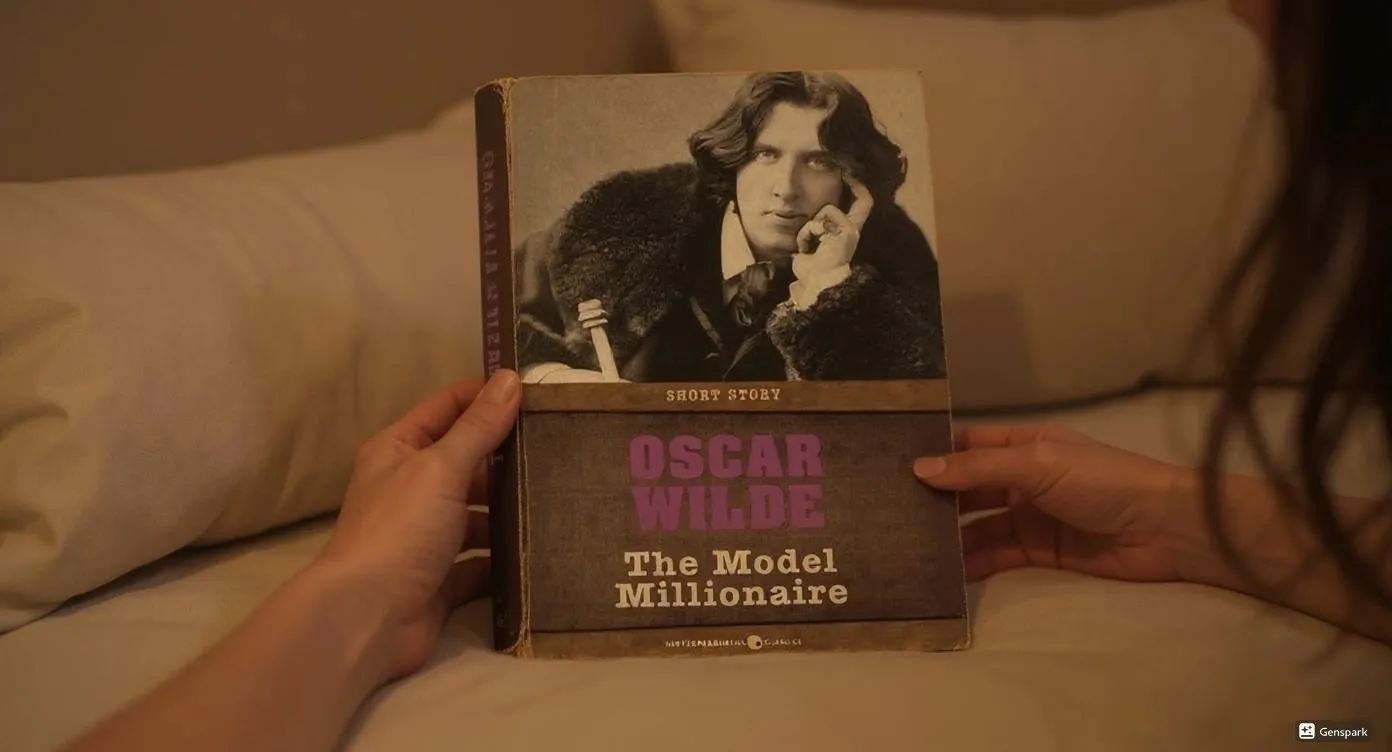I want to be honest. Notes on Infinity by Austin Taylor caught my attention right away. This book tells a growing-up story. It also shows the exciting world of biotech startups.
If you like city stories or exciting books, you will notice the real and fast feeling. Harvard and Silicon Valley seem true. People pay a price for wanting success here.
Key Takeaways
Notes on Infinity gives a true and exciting view of young adults who want big things in biotech. It shows both the fun and the hard parts of chasing dreams.
The book has real characters and strong conversations that make the story feel real and easy to connect with. Readers get pulled into their problems and friendships.
Austin Taylor’s way of writing and quick pace keep readers interested. The book mixes science, ethics, and feelings well, and it never feels like too much.
Overview
Premise
I started reading Notes on Infinity by Austin Taylor late at night. I thought I would only read a few pages. But I could not stop reading. The story mixes the excitement of a biotech startup with the struggles of growing up.
The book is about young adults at Harvard. They have big dreams in Silicon Valley. They hope to change the world with science. But their dreams come with a cost.
Readers agree with this. People on Goodreads say the book shows both the thrill and the stress of chasing big goals. The average rating is about 4 stars. Hundreds of readers have shared their opinions. Most people talk about how the book shows ambition and what it costs.
Main Characters
The main group in Notes on Infinity by Austin Taylor feels real. They remind me of people I met in college. Each character is different:
Feature Category | Description | Contribution to Character Depiction |
|---|---|---|
Each character has quirks and flaws | Makes them memorable and real | |
Positionality | Main characters drive the action | Keeps the story moving fast |
Centrality | The protagonist is at the center of every big moment | Helps us connect with their journey |
Modality | We see their thoughts, fears, and hopes | Adds depth and emotion |
Plot

Key Events
I have to admit, I read Notes on Infinity way past midnight. The story moves fast. Every chapter brings a new twist. Here’s what stood out to me:
The startup pitch: The main characters pitch their biotech idea at Harvard. I could feel their nerves through the page.
Late-night lab breakthroughs: The team works all night. Sometimes they win, sometimes they fail. These scenes felt real and tense.
Big move to Silicon Valley: The group leaves Boston for California. This shift changes everything.
Friendship tested: Money and ambition start to pull the friends apart.
Romantic sparks: Love interests add more drama and risk.
Conflict
The real tension in Notes on Infinity comes from inside the characters. They want to change the world, but they also want to stay true to themselves. I saw them struggle with:
Ambition vs. friendship: Chasing success sometimes means hurting people you care about.
Love vs. career: Romance gets messy when everyone is focused on winning.
Ethics vs. profit: The team faces tough choices about what is right.
Critics say the book builds tension by showing these battles. The story follows a classic arc:
Exposition: We meet the group and see their dreams.
Rising Action: Conflicts heat up as stakes get higher.
Climax: Everything explodes—friendships, love, and business.
Falling Action: The dust settles, but not everyone wins.
Resolution: The characters face the results of their choices.
Themes
Ambition and Youth
I have to admit, ambition in Notes on Infinity by Austin Taylor feels raw and real. I saw these characters chase their dreams with a kind of wild energy that reminded me of my own college days.
They want to change the world, but they also want to prove something to themselves. Sometimes, I felt their hope jump off the page. Other times, I saw how ambition can twist friendships and make people act out of fear.
The book shows how ambition can be both a gift and a curse.
I watched the main group push each other to work harder, stay up later, and risk more.
Their youth makes them bold, but it also makes them reckless.
I found myself rooting for them, even when they made mistakes. The story never lets you forget how much growing up hurts, especially when you want everything at once.
Biotech and Ethics
This part of the story really made me think. The characters in Notes on Infinity by Austin Taylor face tough choices about science and money. They want to build something new, but they have to ask: “Is this right?” I saw them struggle with questions about honesty, safety, and who gets to decide what is okay in science.
The book’s take on biotech ethics lines up with real-world research. Scientists talk about the need for honesty, respect, and social responsibility. I remembered reading about the Tuskegee Syphilis Study, where people were treated unfairly and lied to. That history still matters. It shows why we need rules and oversight in science.
The story also reminded me of debates in classrooms, where students argue about things like gene editing and who owns new inventions. These real-life lessons show up in the book’s plot, making the ethical questions feel urgent and true.
The team faces pressure to cut corners for profit.
They debate if their work could hurt people or help them.
I saw how easy it is to lose sight of what matters when money and fame are on the line.
Love and Vulnerability
Love in this story isn’t just about romance. It’s about letting people see your fears and hopes. I felt the characters’ nerves when they opened up to each other. Sometimes, love made them stronger. Other times, it left them exposed and hurt.
Brené Brown’s research says that real connection needs vulnerability. You have to risk being hurt if you want to feel close to someone. I saw that play out in the book. The characters take emotional risks, and sometimes they get burned.
I also thought about how shame can make people hide their true selves. The story shows how hard it is to be honest about what you want, especially when you’re scared of being rejected.
The book explores how love can heal, but also how it can break you.
I watched characters struggle with jealousy, trust, and the fear of not being enough.
Their moments of honesty felt brave, even when things went wrong.
I’ll be honest, some scenes left me gasping. The emotional stakes felt high, and I cared about what happened to these characters.
Style
Writing
I think Austin Taylor’s writing style is really good. The words feel exciting and full of life. The dialogue has a lot of energy. The descriptions help me see everything in my mind.
Taylor uses both short and long sentences. This makes the story interesting to read. Sometimes, I read parts out loud because they sound cool.
Here are some style choices I noticed:
Stylistic Element Level | Examples of Elements Supported by Linguistics Research |
|---|---|
Big-Picture Elements | Character development, dialogue, foreshadowing, imagery, irony, mood, pacing, point of view, structure, symbolism, theme, tone |
Line-by-Line Elements | Alliteration, assonance, colloquialisms, diction, jargon, metaphor, repetition, rhythm, sentence variety, syntax |
Taylor uses colloquial language and metaphors a lot. This makes the story feel real and close to me. I laughed at the jokes and felt awkward with the characters.
Studies say these choices help readers connect with the story. The first-person narration made it feel more personal. Research says this helps people understand and trust the story.
Pacing
The pacing in Notes on Infinity kept me interested. I never felt confused or bored. Taylor knows when to slow down and when to speed up. I held my breath during tense parts. I relaxed when the story got calm again.
Short chapters and quick changes kept me focused.
Big twists surprised me when I thought I knew what would happen.
Studies show that dramatic twists and good timing keep readers interested and make stories better.
Strengths
What Stands Out
I have to give props to Austin Taylor for making me forget about sleep. I started Notes on Infinity thinking I’d read a chapter or two. Next thing I knew, my coffee went cold and the sun peeked through my window.
That’s rare for me. The story grabbed me with its honest look at ambition and the messiness of friendship. I felt like I was right there in the lab, feeling the tension and excitement.
Here’s what really stood out for me:
Authentic characters: Each person felt like someone I might have met in college. Their quirks and flaws made them real.
Sharp dialogue: The conversations snapped with energy. I caught myself laughing at the banter and wincing at the awkward moments.
Real stakes: The book never shied away from showing the cost of chasing big dreams. Every choice mattered.
Fresh setting: Harvard and Silicon Valley felt alive. The biotech details added a layer of believability I rarely see.
Critical Praise
I noticed critics and readers both praise Taylor’s writing for its raw emotion and fast pace. Many reviews mention how the book balances science with heart. People seem to agree that the story captures the thrill and fear of starting something new. I saw a lot of love for the way Taylor handles tough topics without preaching.
“Notes on Infinity by Austin Taylor Book Review” often highlights the book’s ability to make readers care deeply about the characters. That’s not easy to pull off.
Weaknesses
Areas to Improve
I have to be honest, even though I stayed up late reading, a few things in “Notes on Infinity” pulled me out of the story. No book is perfect, right? Here’s what stood out to me:
Some scenes felt rushed. I wanted more time with the characters during big moments. Sometimes, the story jumped ahead before I could catch my breath.
A few side characters seemed flat. I kept hoping for more backstory or personality, but they faded into the background.
Technical details got heavy. The biotech talk sometimes slowed me down. I found myself skimming when the science took over the page.
Romantic subplots felt predictable. I guessed where things were going early on, so the surprises didn’t always land.
Notes on Infinity by Austin Taylor in Context

Genre Comparison
I’ve read a lot of coming-of-age stories and startup fiction, but Notes on Infinity by Austin Taylor stands out. Most books in this space focus on tech bros or wild parties. This one feels different.
The characters actually care about science, not just money or fame. I noticed the story doesn’t just chase the next big app or a quick fortune. Instead, it digs into what it feels like to risk everything for an idea.
Other startup novels often skip the real stress of lab work. Here, I felt the exhaustion and hope in every late-night scene.
Many coming-of-age books stick to high school drama or first love. This book pushes into the messy world of young adults trying to change the future.
I didn’t see the usual stereotypes. The friendships and rivalries felt honest, not forced.
Unique Qualities
What really sets this book apart? The author’s Harvard background and biotech experience shine through. I could tell the science wasn’t just window dressing. The details felt real, not just thrown in for show.
The lab scenes had me remembering my own late-night study sessions. I could almost smell the coffee and hear the hum of machines.
The ethical debates didn’t feel fake. I saw the characters wrestle with real questions, not just plot twists.
The Harvard and Silicon Valley settings felt lived-in. I believed these people actually walked those halls.
I have to give props to Taylor for making the science and ambition feel so personal. That’s rare in this genre. I’d rate it a solid 7/10.
Sip The Unknown—Discover Stories You Never Knew You’d Love!
Dionysus Reviews Has A Book For Every Mood
Biography & Memoir
Fiction
Mystery & Detective
Nonfiction
Philosophy
Psychology
Romance
Science Fiction & Fantasy
Teens & Young Adult
Thriller & Suspense
Frequently Asked Questions
What Is The Central Premise Of Notes On Infinity?
The novel follows two Harvard undergraduates, Zoe and Jack, who discover a potential breakthrough in reversing aging and find themselves thrust into the biotech startup world. The story explores how their partnership evolves from a chance meeting in chemistry class to founding a billion-dollar company promising longer life.
How Does The Book Balance Scientific Themes With Character Development?
The book functions as a coming-of-age story that is introspective and philosophical without being overly heavy-handed. Critics describe it as both a grand story of science and startups, and a simple story of first love and belonging, suggesting Taylor successfully weaves complex scientific concepts with intimate character relationships.
What Are The Main Themes Explored In The Novel?
The book examines the pressure cooker of academia, the price of fame in the digital age, and how far is too far to go for a chance at corporeal—or scientific—immortality. As the characters become wrapped up in a maelstrom of insatiable ambition, greed and ultimately deceit, their love for each other will be tested to its very limit.
How Has The Book Been Received By Critics And Readers?
The book has received an overall “Rave” rating based on professional reviews. Publishers Weekly gave it a starred review, calling it “a winner” and praising Taylor’s crackling and science-heavy depiction of the hothouse startup. It’s been selected as a Zibby Owens “Summer Read” and Jordy’s Book Club “Most Anticipated Book of 2025.”
What Makes Austin Taylor Qualified To Write About This Subject Matter?
Austin Taylor graduated from Harvard University in 2021 with a joint degree in chemistry and English, giving her direct experience with both the academic setting and scientific concepts central to the novel. She’s described as a former Harvard double concentrator interested in empathy, which likely informs the book’s nuanced character development alongside its scientific authenticity.









